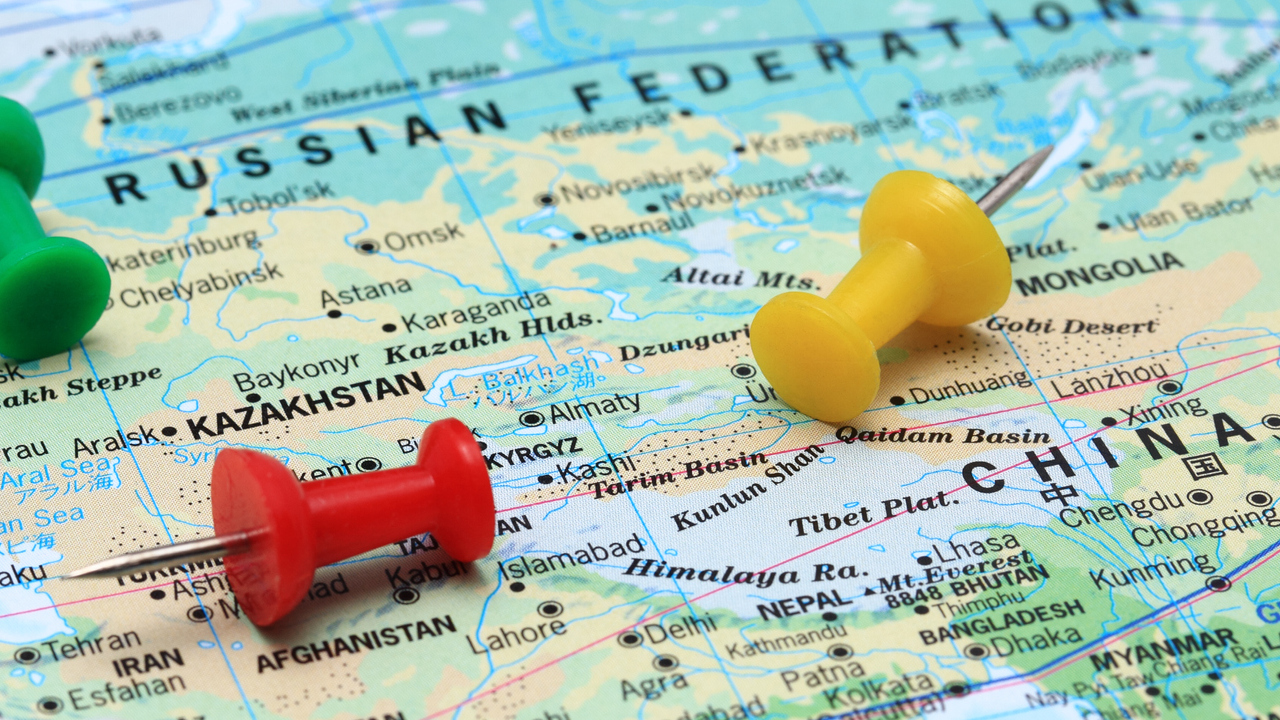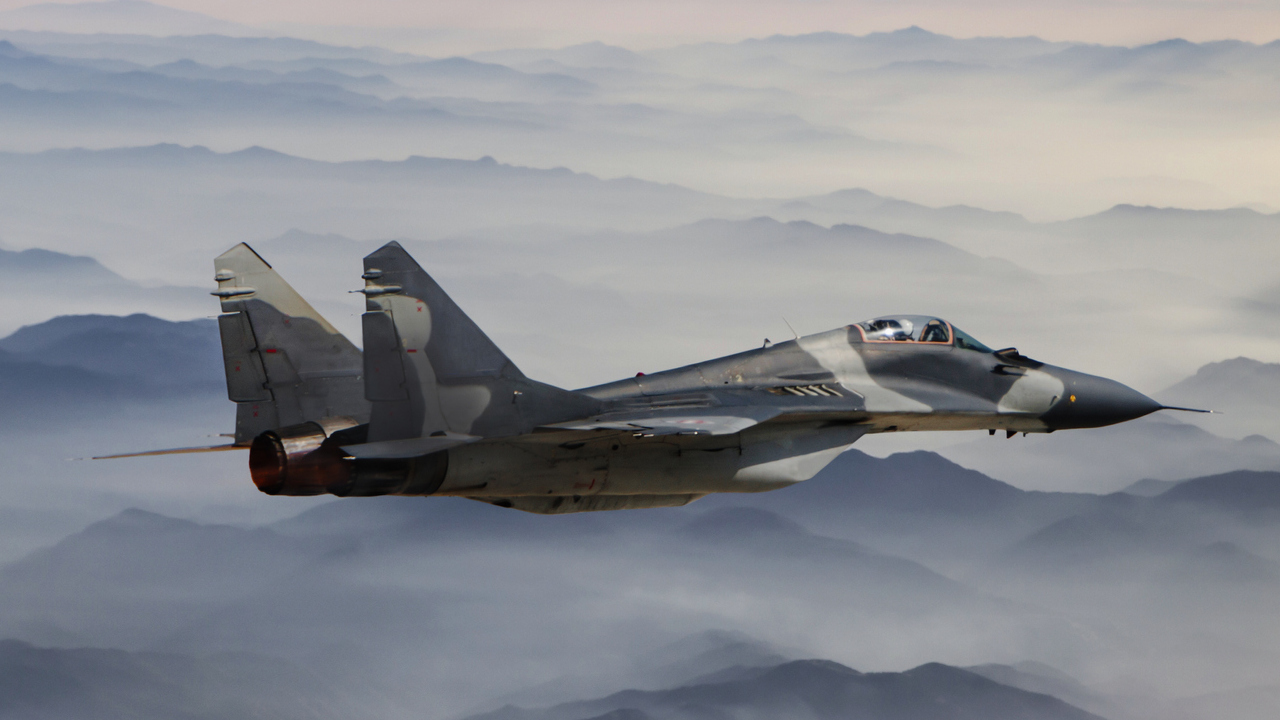Jack McPherrin is the managing editor of 1818 Magazine. Jack works as the research editor for the Editorial Department of The Heartland Institute, where he also contributes to the mission of the Socialism Research Center as a research fellow. He is in the final stages of completing his Master’s Degree in International Affairs from Loyola University-Chicago, where his myriad research interests primarily encompass domestic and international economic policy, global institutions, authoritarian regimes, and foreign affairs - with a particular emphasis upon Russia and China. Prior to his graduate pursuits, Jack spent six years in the private sector after graduating from Boston College with a dual Bachelor's Degree in Economics and History. He currently resides in the Lincoln Park neighborhood of Chicago, a few short miles from where he was raised.

McPherrin: Beware of the Long-term Implications of a Sino-Russian Alliance
As anticipated, Vladimir Putin has invaded Ukraine. As also anticipated, the West has responded with economic sanctions.
U.S. sanctions alone include: asset freezes on Russia’s primary financial institutions and key elites; restrictions upon these same banks from making transactions in U.S. dollars; substantial limitations upon debt and equity financing; import and export controls over military products and critical technologies; and prohibitions upon the Russian Central Bank from using its international reserves.
Most severe is the commitment to removing Russia’s primary banks from the SWIFT network – the Western-dominated financial messaging consortium facilitating international transactions.
Russia’s economy is already experiencing a substantial downturn. Putin knew this would happen, as the West continuously threatened these exact sanctions as a deterrent.
Putin invaded anyway. What does this tell us?
Some believe it tells us he didn’t expect such stiff resistance, and would have behaved differently if he knew the damage the Ukrainian military might inflict upon Russian forces. This explanation is insufficient, as sanctions will remain in place as a punitive measure long after Kiev is likely taken. The speed at which Ukraine falls will have no impact on the Russian economy.
Some believe it tells us that Putin felt pressured to be perceived as the victor in a tense international standoff, whether out of pride, or fear of losing prestige in Moscow. Yet, he could have salvaged this by simply seizing Luhansk and Donetsk and declaring victory. Instead, he went for Ukraine’s throat, and shows no signs of stopping.
Some believe this illustrates that Putin has lost his grip on rational thought; that he is reacting emotionally; that he is perhaps even insane. While possible, this is unlikely – Putin is a former KGB lieutenant colonel, and has always had a reputation for dispassionate action predicated upon cold, hard, and often ruthless logic.
So, what might have led such a man to feel comfortable launching a full-scale invasion of a sovereign country, knowing full well that international condemnation and isolation would swiftly follow?
Putin, like any autocrat, would be emboldened by the existence of an escape hatch, provided by the sheltering embrace of a powerful international player. He would act in such a fashion if he felt comfortable that his economy could survive, and even flourish, by replacing his ties to the West with new and strengthened ties to the East.
China, and its continuously growing network of allies and partners, represents that safe haven.
Just weeks ago, on the eve of the Winter Olympics in Beijing, Putin and Chinese Paramount Leader Xi Jinping released a highly publicized joint statement announcing a substantial strengthening of their economic and political partnership, recently dubbed by The Wall Street Journal as the “New Axis of Autocracy.”
This China-centric axis has only become more apparent in recent weeks. It is not a coincidence Putin waited until just after the conclusion of the Winter Olympics to invade. In fact, recent intelligence indicates that China pressured Russia to wait, clearly illustrating the intimacy of their relationship as well as China’s foreknowledge of the attack.
Moreover, China and many countries within its sphere of influence have avoided characterizing the Ukrainian assault as an invasion, have refused to join Western sanctions against Russia, and have even condemned these sanctions as illegal.
While it is likely that Putin’s brashness is predicated upon the tacit approval of the Chinese, it also serves as a flashpoint for the global financial system, with sanctions hastening the development of a Beijing-based, parallel financial network. Interestingly enough, it was 2014’s sanctions developed in the wake of Putin’s first Ukrainian foray that sparked the greater Sino-Russian synthesis, with Russia using Chinese assistance to help weather the storm.
In the time since, Russia and China have each developed alternatives to SWIFT in order to cast off the yolk of Western financial leverage. Russia created the System for Transfer of Financial Messages (SPFS) in 2014, and China closely followed suit with its Cross-Border Interbank Payment System (CIPS).
Though SPFS is serviceable – and has just been officially launched by the Central Bank of Russia to help avoid the brunt of the sanctions – it is CIPS that has exponentially expanded. As of March 3, China’s network now includes nearly 1,300 financial institutions from more than 100 different countries.
Russia and China are already discussing merging their nascent systems, which together would create a viable alternative to SWIFT and allow Russia to evade much of its current economic pain.
Yet, the ramifications of this transcend sanctions evasion. CIPS exclusively settles international payments in the Chinese yuan, supporting China’s long-term goal of subverting and supplanting the U.S. dollar as the world reserve currency. Sanctions against Russia, according to a capital markets analyst quoted in Reuters, will therefore be “a milestone event that will accelerate the process of de-dollarization. Although it’s hard to replace SWIFT in the short term, this incident is very beneficial to yuan’s globalization over the long run.”
The yuan has already risen substantially in popularity with Russian financiers, with Chinese bonds comprising 13.1 percent of Russia’s currency reserves as of 2021, compared to only .1 percent three years ago. This has corresponded to a significant decrease in dollar-backed securities.
Sanctions will almost certainly galvanize further interconnectivity. And, Russia would add further to China’s already powerful collection of partners, including countries such as Pakistan, North Korea, Iran, Cuba, and Venezuela, as well as increasingly strong relationships with India, South Africa, and Brazil. These countries and many others, some of whom are ostensibly close U.S. allies, have significant ties to CIPS.
China’s goal is undoubtedly to eclipse the United States in power and influence. Replacing American dollars with Chinese yuan is one of their principal mechanisms for achieving this.
It would behoove us to tread very carefully, lest we directly cause the collapse of dollar hegemony, and suffer the incalculable domestic ramifications.
First published at: The Epoch Times.
Photo by samxmeg, GettyImages.







